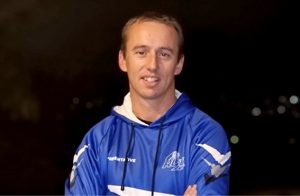Elite Athletes on Social Media
Social media. It’s a great tool isn’t? Websites like Twitter and Instagram are a sports fan’s dream. They provide punters with an insight into a player’s life away from the contrived world of mainstream media while also offering the exiting opportunities to communicate directly to their favourite stars.
Fans are getting something worthwhile from the social media revolution, but it’s debatable whether athletes benefit from participating in the “online conversation”.
Last month ex-Raiders star Josh Dugan was sacked by his club after posting a photo on Instagram of himself drinking alcohol on rooftop during a time where he was supposed to be rehabilitating from an injury.
Less than a month later, Dugan then compounded his problems by going on an expletive filled rant on Twitter during which he suggested a Raiders fan should “end himself”, a mistake which ultimately saw him lose a possible contract with the Brisbane Broncos believed to be worth $2 million over three years.
Sadly, Dugan’s woes with social media are not uncommon within the sporting world. In 2010, Olympic swimmer Stephanie Rice lost a lucrative sponsorship with luxury car company, Jaguar and was forced to make a tearful public apology after she posted a homophobic slur on Twitter in the aftermath of a hotly contested Rugby Union test Match. Similarly, last year AFL footballer Brock McLean was fined $5000 by his club Carlton after tweeting that an online troll’s mother had given him AIDS, while Wests Tigers captain Robbie Farah snapped on Twitter after a user had made explicit comments relating to his late mother.
In light of these recent events many commentators have asserted to in order avoid controversy prominent athletes should consider limiting their use of social media. Professor Keith Lyons, former head of the National Institute of Sports studies is one such commentator. Professor Lyons suggests that to prevent occurrences like the Josh Dugan saga, clubs should considering paying “at risk” athletes additional money to stay off social media networks.
“Many athletes sign up to a code of conduct [for social media] and despite their best intentions end up transgressing.” Professor Lyons said. “If athletes who are reasonably well paid could have their contract linked to the absence of a profile it would remove all the pressures on athletes to create a brand that often clubs had encouraged in the first place.”
Alternatively, Lyons suggests that certain athletes reluctant to give up social media could consider hiring personal social media assistant to tweet on their behalf or give them round the clock advice in the event they are trolled on social media.
“Imagine you’re being upset by somebody one twitter… rather than going straight to a response, just to be able to flick that to somebody else to say ‘can you help?’ to me makes absolute sense.
“If the player is so valuable to the club… then it makes absolute sense to support them. We have doctors on call, we have physiotherapists on call.”
Ben Pollack is the media manager at the Canberra Raiders and was one of men at the coal face of the Josh Dugan saga. Despite the recent controversies, Pollack says that the club still actively encourages its players to use social media. While Pollack acknowledges that social media can be dangerous to athletes if not used appropriately he does not necessarily agree with Dr Lyons’ assertion that certain athletes should be paid not to tweet.
“I don’t think paying players not to tweet is the solution.” Pollack said. “A lot of players use social media for good things for example [Raiders captain] Terry Campese uses it to promote his foundation that he does a lot of charity work for.
“As long they’re doing the right things the players should be allowed to use it as they see fit.”
Pollack believes that the key to minimising social media controversies is to continually educate athletes about how to act appropriately on social media and giving them tools to deal calmly and rationally with trolls independently.
“We have a strict policy on what the players can and can’t post on social media….we just wanted to make sure that the players were aware of the consequences and dangers of posting certain things on social media.
“The biggest thing for us is the education aspect. We’ve spent a lot of time doing workshops with the guys showing them how to use social media, showing them how to engage with the fans and how to ignore trolls.
“You have to put a degree of onus back on the players… they’re grown adults, they should be trusted and know how to look after themselves properly in this forum.”
Professor Lyons supports an emphasis on education but argues that clubs should go further and facilitate educational policies that focus exclusively on the individual player.
“I’m thinking that clubs could have a policy that’s bigger than one size fits all, for instance the media department of a club working with athletes almost in dummy trading environments where they practice on the media for a period of time.”
Whatever the solution, it’s clear that athletes must remember to be seriously careful on social media.
Do they really want their careers to be defined by one stupid post made in the heat of the moment?



Be the first to comment!